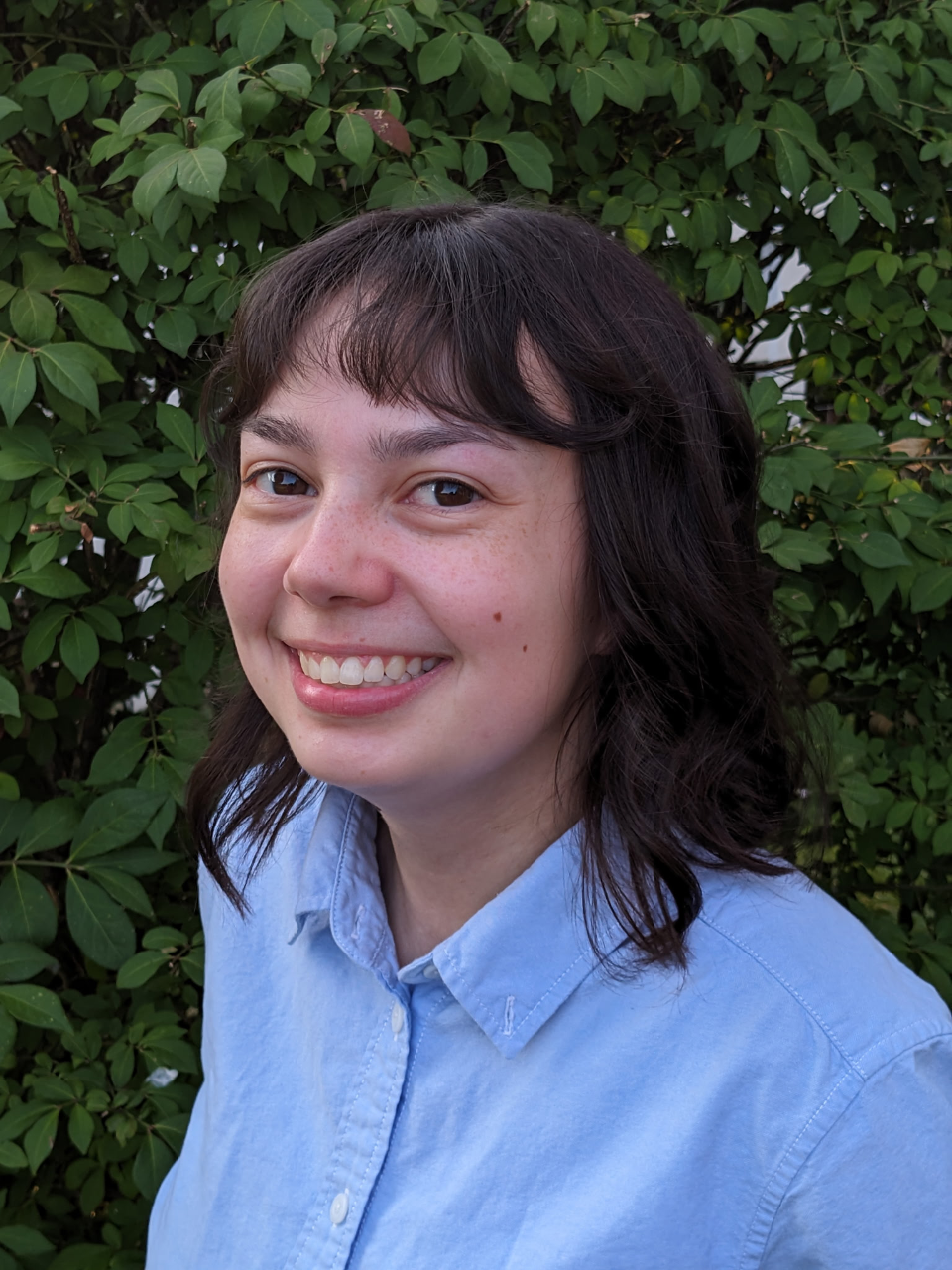
Zoe Robles says the moments from her time at Northern Kentucky University that best shaped her sense of purpose were hands-on, faculty-led research, an internship and a study abroad experience.
Robles graduated with her Bachelor of Science in environmental science and a minor in Japanese in December 2024. Since entering the workforce, she has been able to apply a wide range of skills she gained through her experience at NKU to her career. Robles works as a laboratory technician for the City of Cincinnati’s Metropolitan Sewer District, where she helps ensure the city’s treatment plans are compliant with the Environmental Protection Agency and local standards.
“My time at NKU definitely made this first year of training in my position a lot easier,” she says. “We’ll go through trainings on how to use certain equipment at work and I think, ‘Oh, I already know that!’ It’s a lot easier to be able to understand the science behind why we do the tests that we conduct at work, and I think it’s significantly easier because of the background I have from NKU.”
Robles says the work she does for the city is similar to the Climate Safe Neighborhoods (CSN) project, a research project she worked on as an undergraduate under environmental science professor Dr. Kristy Hopfensperger. CSN is an ongoing research project which aims to identify neighborhoods most vulnerable to climate change and connect with the residents of those communities to develop solutions.
“My job now is similar to the CSN project but on a larger scale,” she says. “I’m doing a small part, and standing alone my job may not seem super important, but when you put all of us together we have a really big environmental impact.”
When Robles began her research for CSN with Dr. Hopfensperger, she was completing a geographic information systems internship with Groundwork Ohio River Valley, a nonprofit environmental justice organization based in Cincinnati, Ohio, that also had a hand in CSN. She says the internship and the project gave her valuable, first-hand experience with geographic information systems—more than what she would get out of an academic course alone. Specifically, Robles’ role was spearheading the beginning stages of expanding CSN into northern Kentucky.
“During the project, I got to work with geographic information systems software and compiled data from national, state and local sources to determine what areas we needed to address, and helped narrow it down from all of northern Kentucky to just Covington, Newport and Dayton,” she says.
Researchers would then hold meetings with community members, where Robles would explain the data they gathered about each neighborhood and help community members learn to communicate about the impacts of the project. Robles says her experience from the CSN project motivated her to pursue a career in nonprofit work.
“I really liked being able to do the work,” she says. “I think it really shifted my view on climate change because it’s really easy to think that everything is going terribly and we’re not doing enough—it’s very doom and gloom—but that was a project where I got to see that there are a lot of people actively working for change in their local communities. And it’s not like everything is entirely out of our control, there is always small stuff that we can control, and I think that stuck with me on a personal level.”
After wrapping up her time on the CSN project, Robles continued to participate in research under Dr. Hopfensperger. She says the most memorable project she worked on was on spring ephemeral plants, and she later presented their findings at the Association of Southeastern Biologists annual meeting.
“It was really cool because I got to work on that same project for multiple semesters and then I also got to present it at NKU’s research celebration and another conference in Myrtle Beach this past summer,” she says. “It was really nice to be able to have that kind of experience on my resume.”
Aside from research projects and internships, Robles says she also gained valuable skills during a study abroad in Japan.
“Japan was a really great experience for learning how capable I was of doing things that I didn’t think I was capable of,” she says. “It made me realize how much I value human connection and getting to know people, even if it’s a stranger that you’re probably never going to see again. I think that’s something that I wanted to carry over even after I graduated.”

Public Relations Specialist